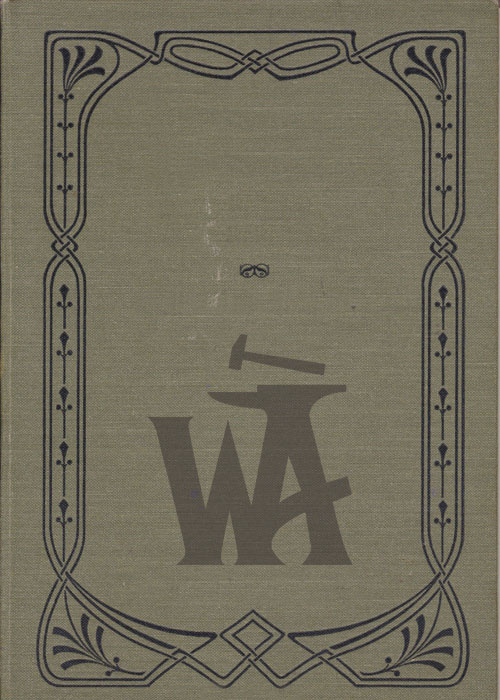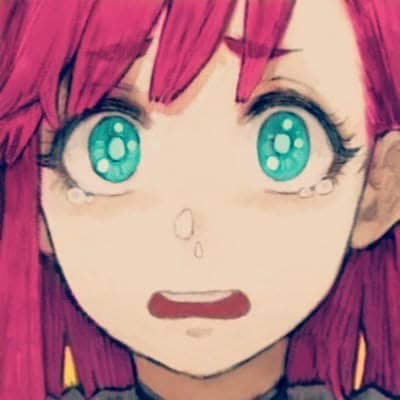❝ King ov’ kings, God to gods,
Place the thorned crown upon ye’ head,
And sit upon ye’ throne of lies.
Take into ye’ the holy fruit,
And taste the ash of trees and blood ov’ man. ❞
Upon Pleroma’s collapse – Elyon, much like its inhabitants was free of ignorance and was finally able to conceive of itself, supposedly becoming a sentient being that was also born of desire. This is considered to be the time where Elyon decided to divide the races and separate them from each other in an attempt to prevent any wars or unrest within its realms, though this would last, it wouldn’t be forever. This is why some believe that one of the Reshimu, or even a member of the lesser races had acquired its power for themselves, and took it upon themselves to enact Elyon’s “will”
Ratzon did this whilst also taking in the source of chaos and sealing it within themselves and sealing them within the remnants of Pleroma, along with a group of their most trusted aides in a structure akin to the great tree, yet one that was carved from the stars themselves and acted as a gateway to his domain. This would later become the crown, Olam Elohim Atziluth, the domain of Elyon and the source of all creation.
Pleroma had divided itself into twenty realms and twenty entities, which would later be known as the “Greater Powers”, or the “Shenkina” that consist of the Tree of Life, the Sephirot, and the Tree of Death – The Kepilot, and later, the Qliphot. These Greater Powers were born of the first of the Reshimu, the original fragments born of Elyon and Pleroma itself.
Known as the “Yosher”, they governed the realms and watched over them for eons whilst Elyon resided in their own domain, separated and concealed to prevent the endless source of power and knowledge from unravelling the worlds. The terms for the Sephirot were named the “Da’as Elyon” or “Higher Knowledge”, whilst the Kepilot were the “Da’as Tachon”, or “Lower Knowledge”. This theme is recurring in various forms of literature.
Because of this, the Reshimu had been granted the dominion over most of these domains, seating them as the pillars of the new world as he remained as the sun that gifted them life and light. It should be noted that whilst they did now hold dominion over the worlds, their powers were incomplete compared to the Tzachtzachot. They were thus granted the power “Elyon Berachot” - The Divine Blessing of God. Later; in the current hierarchy of Aperion, this power is granted to those who are given dominion over one of the Nine Choirs. Currently, nothing is known about these powers other than the name of one – "Hear No Evil”
As the paradise collapsed, its remnants were scattered and used to form the newer domains, whilst others were left barren, and some were forged into new worlds and stars, creating the wider universe which resides within Elohim – The name in which Ratzon would later take for itself, as the latter would often be coined as the universe, where Elohim was the individual. Yet he would be known by both, and neither. But as it is said, all is one, and one is all – Even if, the so-called new “god” was a farce. God was dead, and they were all dancing on his corpse.
As Ratzon had eaten the fruit of Gnosis; he also inherited the personification of evil. Though many believed him to have “consumed god”, instead of acquiring the dominion over all of creation and Elyon, the foolish king had taken upon him a curse that would bring the source of all evil – The Qliphot. Yet to say that he was the root of all evil would be a lie, as it is widely considered that the essence of the Qliphot and their opposing forces were already carved upon the blueprints of creation. Perhaps this was something left behind by the former world.
Whilst he did divide his domains up under his ilk, consisting of the Tree of Life and the Tree of Death, it should be noted that up until this point, there was no true concept of good nor evil, however upon his bestowment of power unto his most trusted aides, the Yosher – He too gifted the seeds of pure chaos.
But as he did this, he also made the foolish choice of leaving them behind to govern the lower worlds as he remained in Pleroma, which only did well to deepen the festering hatred within them. Hatred – And a darkness that had not yet seen the light, a darkness as ancient as the universe itself. Another thing to note is that upon the creation of this new world, many of the races were struck by plagues and diseases unlike any other, and as they had not seen such death before, they feared for themselves – And swore felty to the Yosher in vain attempts to be free from the corruption. The very corruption they submitted to.
The Reshimu who were left behind by Elyon did not forget those events, to which some revered him for his bravery, whilst others detested him and felt it as a betrayal for him to leave them behind. Of course, as there is light there is always darkness, and that darkness was ever present, and ever consuming the lands day by day. There were no cut and dry ideologies of good nor evil, and though many beats and men lived together side by side in peace, the festering hatred was soon about to boil over into outright warfare that would plunge the domains into a period known as the Dark Ages, and later the Kabbalic Wars.
The exact amount of time since the fall of Pleroma is unknown, but eons had passed and many of the domains and civilisations evolved with their races. This would be the time where many of the lesser races came to be, beasts and beings of all kinds, Fae and Dragons, Elves and Dwarves alike. As the realms were separated, the races evolved and created unique cultures and communities that were forged upon the ideals in which their patrons provided. Some domains were carved for the existence of the feral beasts whilst others were chiselled to seat the most refined of races. Though there were twenty major domains, there were countless races, hundreds – Thousands even.
Since the fall of Pleroma, the twenty domains had been changed through various hands and cultures through alliances and wars, though two major parties would become the dividing factors in a conflict that had raged across the lands since they were carved. These were the Reshimu, and the Aeonians, having both taken many of the lesser races under their arms and continued to fight for power and dominion over the planes.
This caused unrest and conflicts between the neighbouring tribes, some of which prevailed and overcame their foes, some of which enslaved them or simply killed them. Blood was shed for land, forests burned, and the primitive tribes conceived of war and violence, among many of the world's earthly delights and sins. Plagues ran rampant, and the horsemen were said to roam the lands near and far, bringing about their darkness and corruption wherever they trod.
However, as two of the Qabal were at war, the others remained neutral; taking it upon themselves to protect the holy lands and so it was agreed upon that as far as the war may rage, it shall never carve itself upon the lands in which was considered to be the last paradise. And with this, none shall take in or harm those that guard the heart of Elyon.
For every year of calm, there is ten lost to violence, so ten thousand years of peace, there is...
One hundred thousand years of war is something that anyone would have trouble in perceiving, and whether or not it was truly as long as the tales dictate, matters not as it was an event that had deeply scarred all of creation through countless generations. Most were fatigued from the constant battle, and even more were unsure whether or not there was any point to fighting something that seemingly had no end.
But to think it was a constant fight on a war-scarred land would be to do it a disservice. It was not a constant violence rather it was one that encroached upon the wary masses, sewing discord and political unrest as factions fought for land and resources. Simply, it was a period that was chaotic, and all who lived were unsure whether they would live to see tomorrow. One could not die of age, but they could indeed die of violence.
And there was violence aplenty in Paradise.







